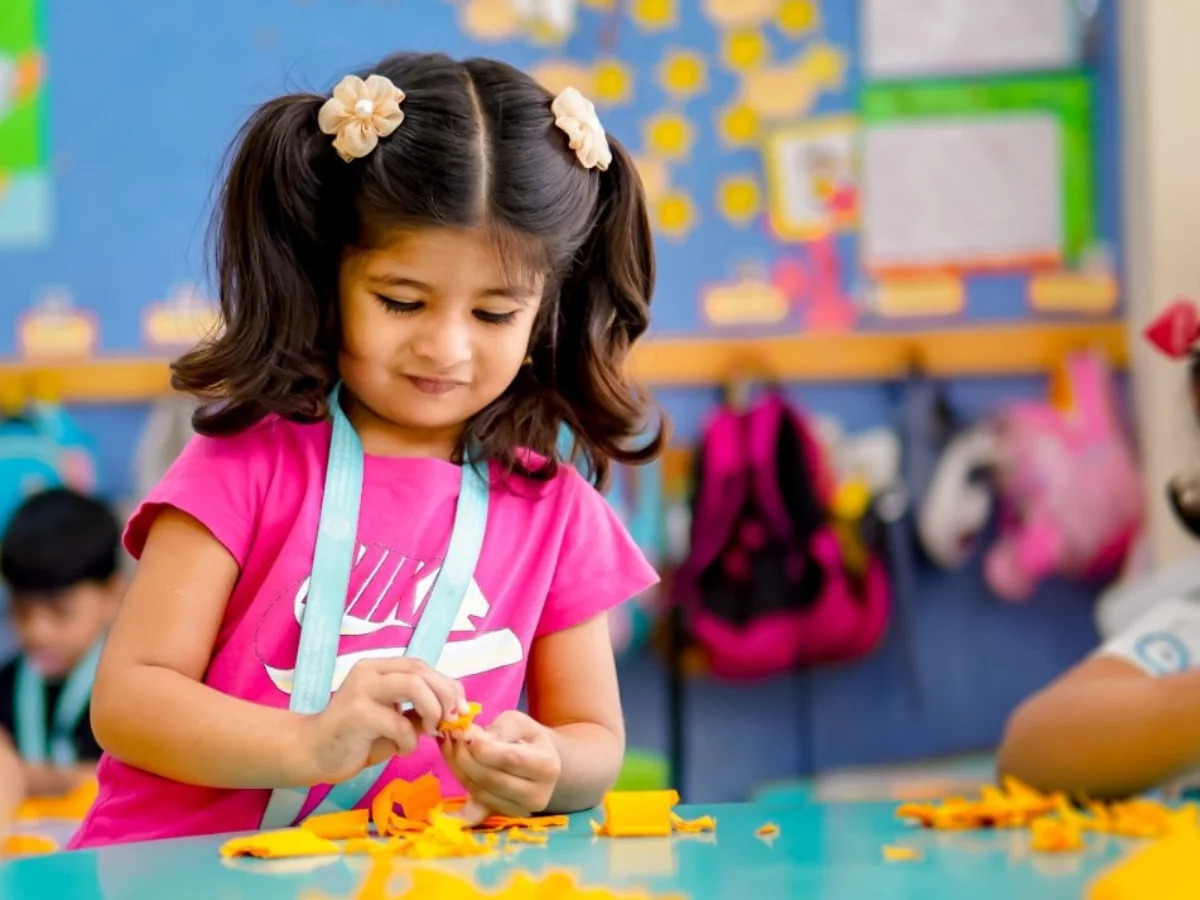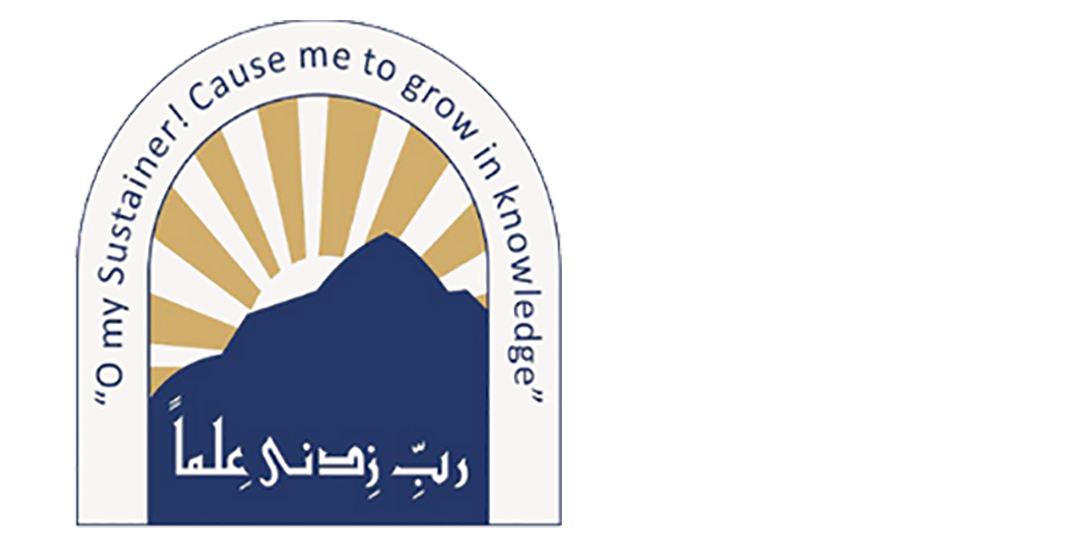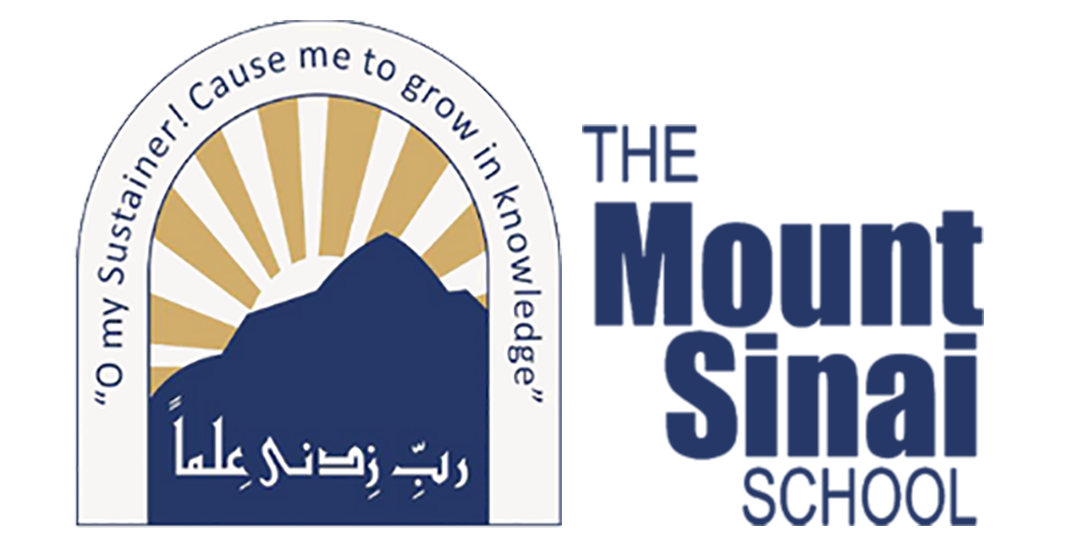
Early childhood is a crucial period for building the foundation of lifelong learning. At The Mount Sinai School (TMSS) in Islamabad, our Montessori learning approach offers a nurturing, hands‑on environment where children grow academically, socially, and emotionally. While our Open House also provides parents a brief insight into alternative approaches such as Waldorf, our primary focus remains on the proven Montessori method and its unique benefits for young learners.
We invite you to join our Montessori Open House, Monday to Friday, 10:00 AM to 2:00 PM, and experience firsthand how our approach shapes confident, independent, and creative children.
What is Montessori Education?
Montessori education is a child‑centered learning approach developed by Dr. Maria Montessori. It encourages independence, curiosity, and self‑motivation by allowing children to explore prepared learning environments at their own pace. Instead of traditional teacher‑led lectures, Montessori classrooms empower children to choose activities that match their developmental stage and interests, creating a strong foundation for lifelong learning.
Key Features of Montessori at TMSS
1. Prepared Environment
Our classrooms are carefully designed to promote freedom of movement and choice while maintaining order and structure. Low shelves, child‑sized furniture, and neatly arranged materials create an inviting atmosphere where children feel respected and capable.
2. Mixed-Age Grouping
Montessori classes bring together children of different ages, typically spanning three years. Younger children learn by observing older peers, while older students reinforce their knowledge by guiding and mentoring the younger ones. This natural social dynamic fosters collaboration, empathy, and leadership skills.
3. Hands-On Learning Materials
Specially crafted Montessori materials encourage tactile exploration and active engagement. From sandpaper letters to counting beads and geometric solids, these tools help children internalize concepts in mathematics, language, and sensorial development through real-life experiences.
4. Focus on Independence
Children are encouraged to complete tasks on their own—whether pouring water, tying shoelaces, or arranging flowers. This builds confidence, resilience, and problem-solving skills from an early age.
5. Child-Led Learning
Each child follows their own learning path, guided by curiosity rather than rigid schedules. Teachers observe and support rather than direct, allowing natural progress and fostering intrinsic motivation.
Exercises of Practical Life (EPL): The Heart of Montessori
One of the most distinctive components of Montessori education is Exercises of Practical Life (EPL). These activities mimic everyday tasks and help children develop coordination, concentration, and independence.
Examples of EPL Activities
- Pouring and Transferring: Children practice pouring water, grains, or beans between containers, improving hand‑eye coordination and muscle control.
- Buttoning and Zipping Frames: Using dressing frames, children learn practical dressing skills, boosting confidence and fine motor skills.
- Cleaning and Polishing: Activities like table wiping, sweeping, or polishing shoes teach responsibility and care for the environment.
- Food Preparation: Simple tasks such as peeling bananas, slicing soft fruits, or spreading butter on bread foster independence and healthy eating habits.
- Grace and Courtesy Lessons: Children practice greetings, polite conversations, and table manners, supporting social development.
Benefits of EPL
- Builds concentration and orderliness.
- Strengthens fine motor skills needed for writing and daily tasks.
- Promotes self‑care and respect for the environment.
- Encourages independence and responsibility.
EPL lays the groundwork for academic learning by developing the control and focus required for later reading, writing, and mathematical tasks.
Montessori Approach to Early Academics
Language Development
Montessori introduces language through phonetics, sandpaper letters, and moveable alphabets. Children learn sounds before symbols, enabling them to write words even before formal reading begins.
Mathematics
Materials like number rods, golden beads, and spindle boxes make abstract concepts tangible. Children grasp quantity and value by physically handling objects rather than memorizing numbers.
Sensorial Exploration
Children refine their senses through activities involving texture, color, shape, sound, and weight. Sensorial materials prepare the mind for geometry, algebra, and scientific classification later in life.
Cultural and Science Studies
Montessori integrates geography, botany, zoology, and history at an early stage, inspiring awe and curiosity about the world.
Why Montessori Works
- Respects natural development: Children learn when ready, avoiding unnecessary pressure.
- Encourages curiosity: Freedom to explore leads to deeper understanding and love for learning.
- Fosters intrinsic motivation: Children work for satisfaction, not for rewards or grades.
- Develops life skills: From self‑care to conflict resolution, Montessori prepares children for real‑life challenges.
- Creates confident learners: By mastering tasks independently, children build self-esteem and resilience.
The Montessori Environment at The Mount Sinai School
At TMSS, our Montessori classrooms are vibrant, orderly, and child-focused. Every detail—from the arrangement of shelves to the choice of materials—promotes independence and curiosity. Our teachers are trained to observe each child’s needs and gently guide them without interfering in their natural learning process.
Parents visiting during the Open House will see:
- Peaceful work cycles where children choose their activities.
- Young learners helping each other, fostering collaboration.
- Hands-on exploration rather than passive listening.
- Practical life tasks seamlessly integrated into daily routines.
- A balanced focus on academics, social skills, and emotional growth.
What You’ll Experience at Our Montessori Open House
- Meet the Teachers: Engage with educators trained in Montessori philosophy.
- Observe Classrooms: Witness hands-on learning and independence in action.
- Explore Materials: Experience iconic Montessori tools like bead chains, knobbed cylinders, and pink towers.
- Understand Philosophy: Learn how Montessori nurtures self-discipline and love for learning.
- Ask Questions: Get clarity on admissions, curriculum, and your child’s developmental journey.
When and Where
Dates: Monday to Friday
Time: 10:00 AM – 2:00 PM
Venue: The Mount Sinai School, Islamabad
Bring your child along to explore the learning space and interact with teachers.
FAQs
1. What age group does the Montessori program serve?
TMSS Montessori caters to children aged 2.5 to 6 years, covering playgroup, nursery, and kindergarten levels.
2. How does Montessori differ from traditional schooling?
Unlike traditional methods, Montessori focuses on hands-on, child-led learning without rigid timetables or constant teacher instruction.
3. What role do parents play in Montessori education?
Parents are partners in the process. We guide them on supporting independence at home and understanding their child’s developmental stages.
4. Are Montessori children prepared for regular primary school?
Yes. Montessori builds strong academic foundations, social skills, and adaptability, ensuring a smooth transition to any primary school system.
5. Can I observe a class during the Open House?
Absolutely. We encourage parents to observe classrooms to experience the calm, productive environment Montessori offers.
Discover how Montessori can shape your child’s future.
Join our Open House this week at The Mount Sinai School and step into a world where learning is joyful, purposeful, and child-driven.
📍 Location: The Mount Sinai School, Islamabad
🗓 Days: Monday to Friday
⏰ Time: 10:00 AM – 2:00 PM
👉 Reserve your spot now! Visit our admissions office or contact us via phone/WhatsApp to confirm your attendance. We look forward to welcoming you and your family!

